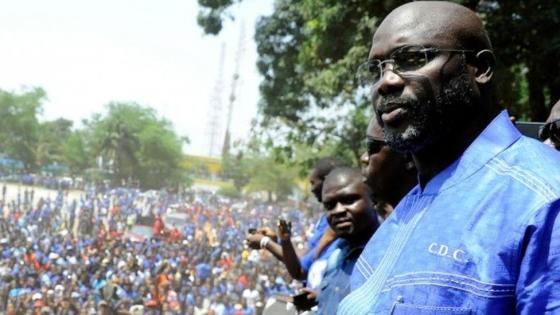Liberia: "No Party Bigger than Us,” Says Weah

-— “As you know, we are a party formed to promote the interests of the Liberian people.”
President George Weah has claimed that no political party in Liberia is bigger than the ruling Coalition for Democratic Change (CDC).
Weah, whose ruling coalition has governed the country for almost six years with mixed results, made the boastful claim as he welcomed six more parties to the ruling coalition, expanding its number to nine.
However, the six political parties are not widely known to the public and have struggled in the past to attract supporters and gain votes, especially in a highly competitive and crowded political landscape.
Out of the six political parties, only the United People's Party (UPP) and the Movement for Economic Empowerment have participated in competitive elections. However, their performance has been poor and it remains to be seen how much influence they will wield in the upcoming election.
“There is no party bigger than us,” Weah said. “As you know, we are a party formed to promote the interests of the Liberian people. This is paramount in everything that we do, and is a fundamental pillar of our pro-poor development agenda.
“By joining the CDC, [it] marks a significant enlargement of the [party] into a broad-based political movement that incorporates a multiplicity of diverse and various actors in Liberian society into a single unified political organization.”
Weah added that the ruling Coalition is a grassroots movement that represents the aspirations of ordinary people and their path to sustainable development.
According to him, his administration has lived up to its mandate by tailoring policies and development programs to specifically focus on improving the lives of the poor.
He cited tuition-free policies for secondary and tertiary education, infrastructure improvements such as hospitals, housing units, parks, and schools, as well as ongoing construction of several road projects as some of the achievements of his administration, which he believes justifies his re-election bid.
“Large and small-scale development projects continue to sprout in various places across the country. It is these enormous undertakings that we have managed to pull off in so short a time that will be presented to the Liberian people in October of this year as our proud track record, and as the basis for requesting a second mandate to complete the works that we have already begun.”
However, Weah did not mention his handling of the economy, which has resulted in increasing poverty and unemployment rates. The country's overall human development score has significantly declined, making it the worst in the ECOWAS sub-region.
Under Weah's leadership, the country has also experienced a significant drop in its international transparency ranking. Just last year, three of his close associates were sanctioned for public corruption but, despite public outcry, none have been prosecuted.
Nathaniel McGill, the most notable of them, is expected to run for the Margibi County Senatorial seat on the ruling party's ticket, given his position as the President's Chief of Staff.
The six parties that the President claims have strengthened his party are the lesser-known People's Liberation Party (PLP), Union for Liberia Democrat (ULD), Redemption Democratic Congress (RDC), Change Democratic Action (CDA), United People's Party (UPP) and the Movement for Economic Empowerment (MOVEE).
MOVEE is chaired by D. Maxwell Kemayah, Liberia’s current Minister of Foreign Affairs.
The National Patriotic Party (NPP), Congress for Democratic Change (CDC), and Liberia People's Democratic Party (LPDP) are the three original parties of the ruling Coalition for Democratic Change.
However, there is a crisis among the three parties as former Speaker Alex Tyler, political leader of the LPDP and Senator James Biney, chairman of the National Patriotic Party, have not endorsed the framework document that holds the Coalition together for another six years.
Both Tyler and Biney, natives of Maryland County, claim that without their signatures on the document, anything to the contrary is invalid, suggesting that an approved and signed framework document has yet to be produced.
However, the ruling party has rejected the accusation, saying the relevant constituted leaders of the three parties, with the backing of its executive committee members had re-endorsed the Coalition framework document, paving way for the three parties to once more contest the 2023 elections under one umbrella.
Vice President Jewel Howard Taylor and a few other executive members of the NPP, excluding Biney, signed the framework document in February on behalf of the National Patriotic Party; while Moses Kollie of the LPDP did the same without the involvement of his political leader.
However, Morlu and his supporters insist that there are no issues with the framework documents.
Meanwhile, Kemayah has claimed that the decisions by the six parties to join the ruling Coalition is a result of developments across the country.
